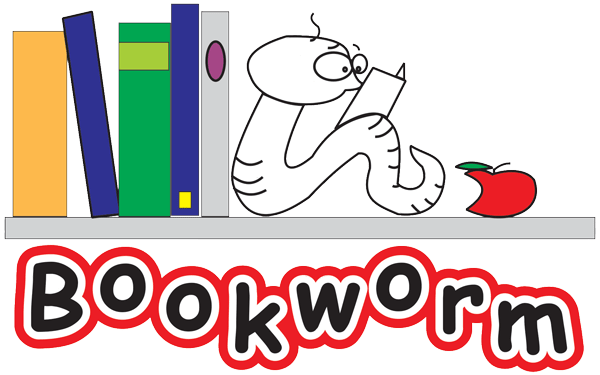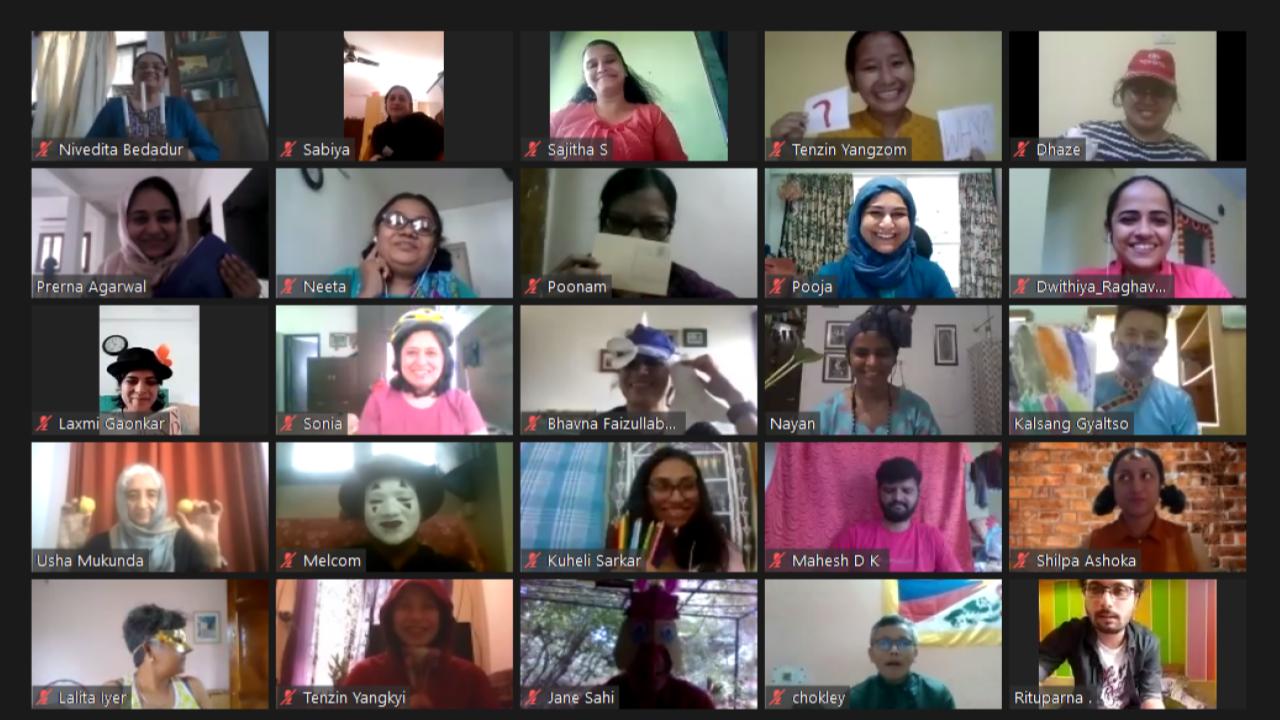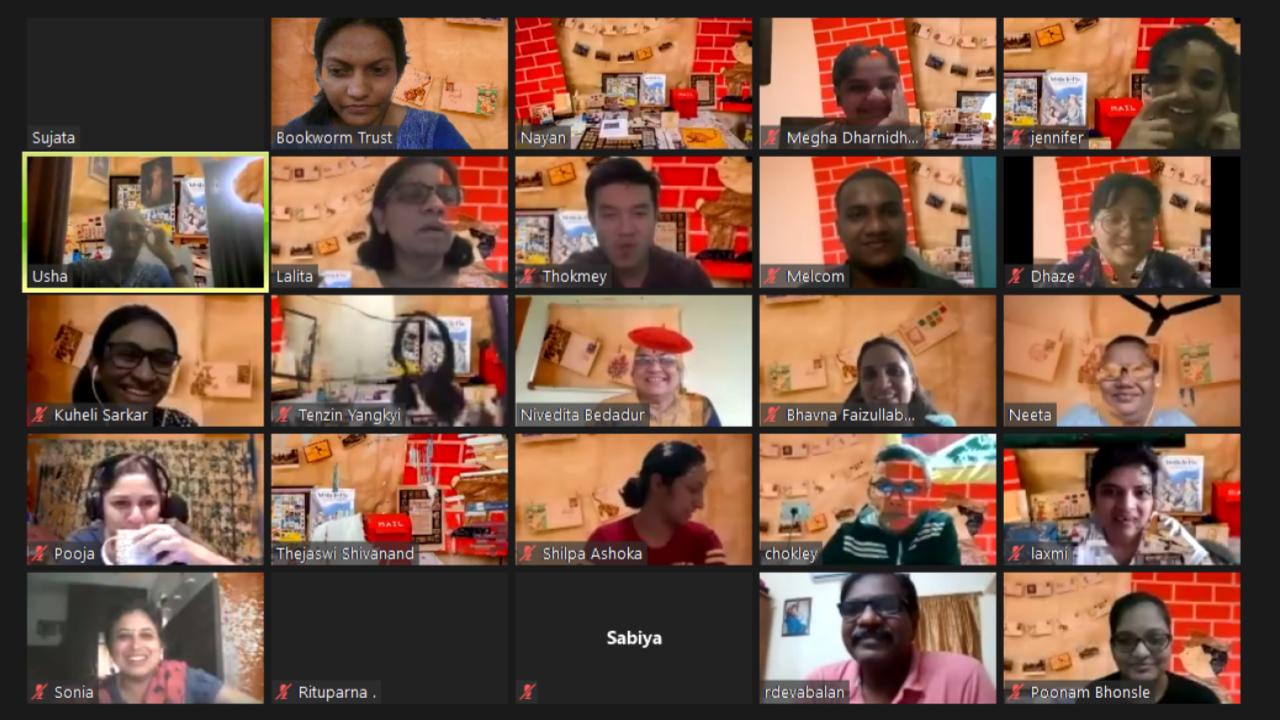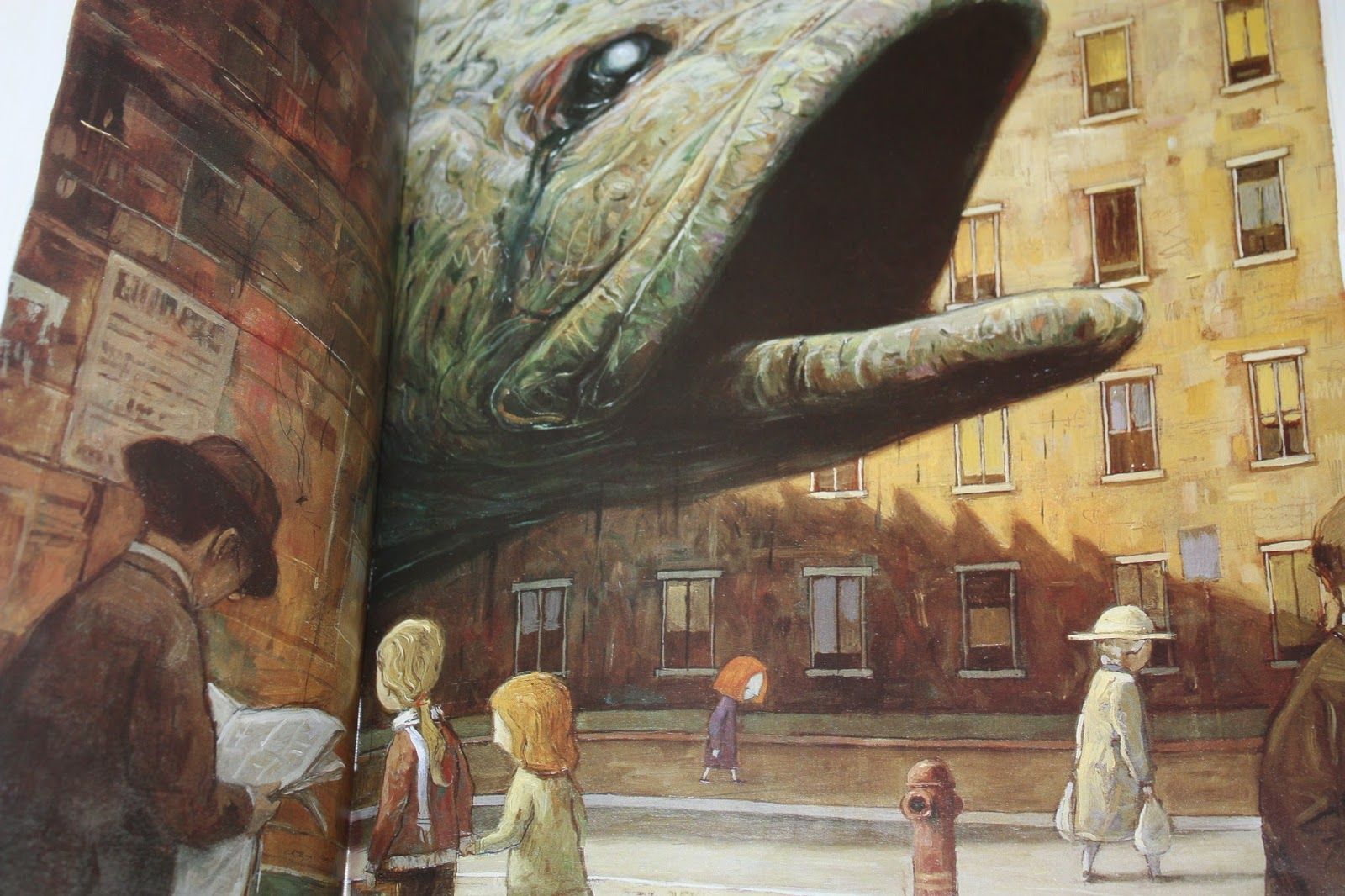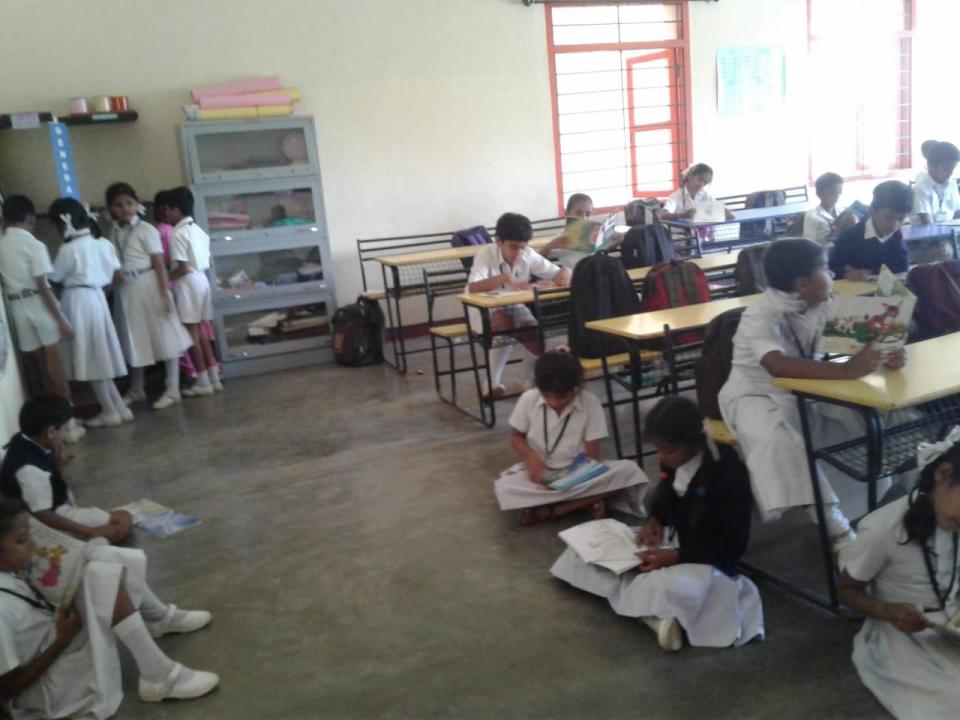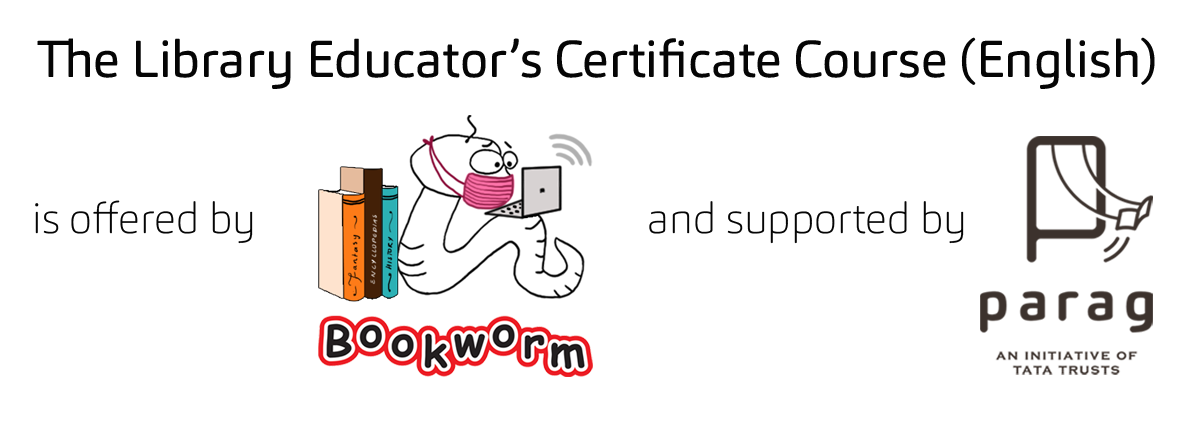Written by Sonia Deshpande, LEC 2020
It was in a pre-pandemic February of 2020 that I eagerly applied to the Library Educators Course (LEC) offered by the Bookworm Trust, Goa. It was the title of the course that drew me to it, the bringing together of the library with education. The course was about to begin when the pandemic struck and we had to relearn how to live in a changed reality. How fortuitous then to attend the LEC 2020 virtually, in a year of unlearning, a course that made me rethink everything I knew about libraries and learning.
I must admit that I was rather naïve about what I thought the course would be, like a person sitting on the beach, thinking of dipping their toes in the water. The LEC course was like a huge wave that swept me in, effervescent yet powerful, shaking and overturning ideas about libraries, reading, even childhood, making me realize how much I had to learn and more importantly to unlearn.
One of the ideas I had to re-examine was my understanding of library work. My pre-LEC notion of library work was that it was mainly organizational, dealing with cataloguing and arranging of books and those who worked in libraries were efficient and knowledgeable about finding books. Beyond locating books, there was nothing more I expected of librarians. Oddly enough, I never considered librarians to be fellow readers and this was the reason why I couldn’t see myself as a librarian; that is until I learned to see in the LEC way.
What I have come to see as the LEC way, is a practice to get to the heart of the matter, to cut out the excess and get to the bare bones. Let me give you an example. The last virtual session we had was about report-writing. I had expected it to be about the format of reports. The guest speaker, Radha Gopalan, pared it down to ‘report writing is about communication’. It was a ‘light-bulb’ moment to realize the essence of reports was that it is a way to communicate. Suddenly the heavy, dry notions about report-writing gave way to this simple, clear idea. This is not to say that the course is simplistic in any way.
The LEC way is about getting down to the why, to ask as Emily Ford pertinently did, why we do what we do? Before the course, I had an incomplete perception that library activities were aimed at getting children to read. Like getting a horse to the water, once children were reading, I thought there was nothing more to do. The course made me aware of the role that the library educator plays in nurturing readers— to nudge readers to read and make connections to their own lives and become sensitive, critical readers. Through the course, I have come to understand why libraries are essential and that they are places that offer freedom and choice, places that value diversity and where there is trust and respect for all.
The LEC way is also an approach to every task with warmth and intention and could be felt in the manner the course was conducted. The course was energetic, engaging and thought-provoking, unlike any online course I had ever attended. The online sessions were not only about exploring different facets of library work but also showed how to facilitate sessions through engaging activities. Nayan’s game, ‘Idli, Dosa, Samosa’ with which she opened one of our sessions, was a tremendous success when I played it with children during an online session.
LEC, in its virtual avatar, stood out from other online courses as it used a “show don’t tell’ approach. In the session on the human element in the library, instead of explaining the roles or the qualities of a librarian, we read and heard stories of remarkable librarians. Usha’s introduction to Ms. Moore, brought to life the qualities of a librarian more powerfully than any bullet-point list would have.
The dual modes of LEC, the engaging online sessions followed by the more thoughtful reflective Moodle discussions, helped scaffold my learning. I remember struggling to understand a complex paper by Krishna Kumar on Childhood in India. But the online session, with the passages chosen by Thejaswi related to the main ideas in the paper and the discussions around these, brought it all together and made the paper seem accessible. On the other hand, the Moodle discussion that followed the online session by Jane on examining the congruent or divergent nature of text and images in picture books led me onto a path of discovery of Shaun Tan’s work.
LEC was about learning together and learning from each other. Through discussions in the online sessions and through virtual group activities, I came to recognise the tremendous value in learning together. It was for this reason that I actively participated in the reading circle, an informal online gathering to talk about the ideas introduced in the online sessions. These conversations with fellow learners enriched and deepened my understanding as we constructed meaning together. Another pathway that gave me the opportunity to learn through dialogue was in the interactions with my mentor. This unique learning pathway was instrumental in helping me navigate the course and in shaping my learning.
The LEC was also about learning by doing as it offered the opportunity to engage in a field project. Brimming with ideas, I started my field project only to realize my glaring lack of experience in interacting with children. As I strove to engage and connect with children, I realised that though I have the tools and the knowledge, there is more to learn on this journey.
I’m grateful that I can remember this year as the year of learning, of reading, of finding a tribe of passionate, committed library educators. This is an incredible pathway that the LEC has opened and I am glad for the wisdom and warmth of my fellow travellers. I recall a photograph shared by an LEC alumni of a classroom during lunch hour; children standing near bookshelves, some sitting on the floor and some at their desks, pouring over books, absorbed in reading. This to me is the LEC way— children choosing to revel in the joy of reading.
References:
- Ford, Emily. (2012). What do we do and why do we do it? LEC 2020 Compendium 01: 5 Pp 55
- Kumar, Krishna. (2016). Studying Childhood in India. LEC 2020 Compendium 03: 4.
- Pinborough, Jan. (2013). Miss Moore Thought Otherwise. Houghton Mifflin Harcourt.
- Tan, Shaun. (2001). The Red Tree. Hachette Livre
